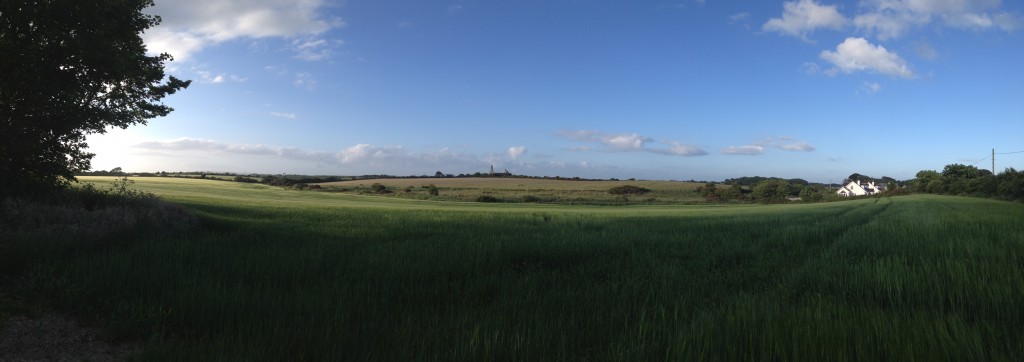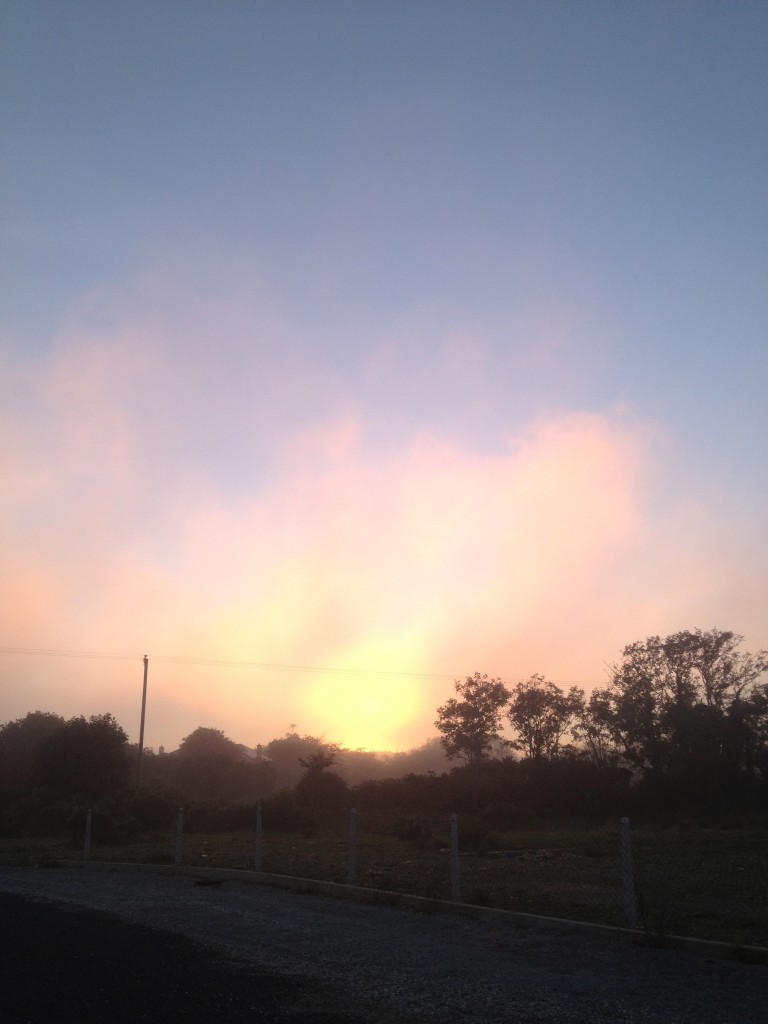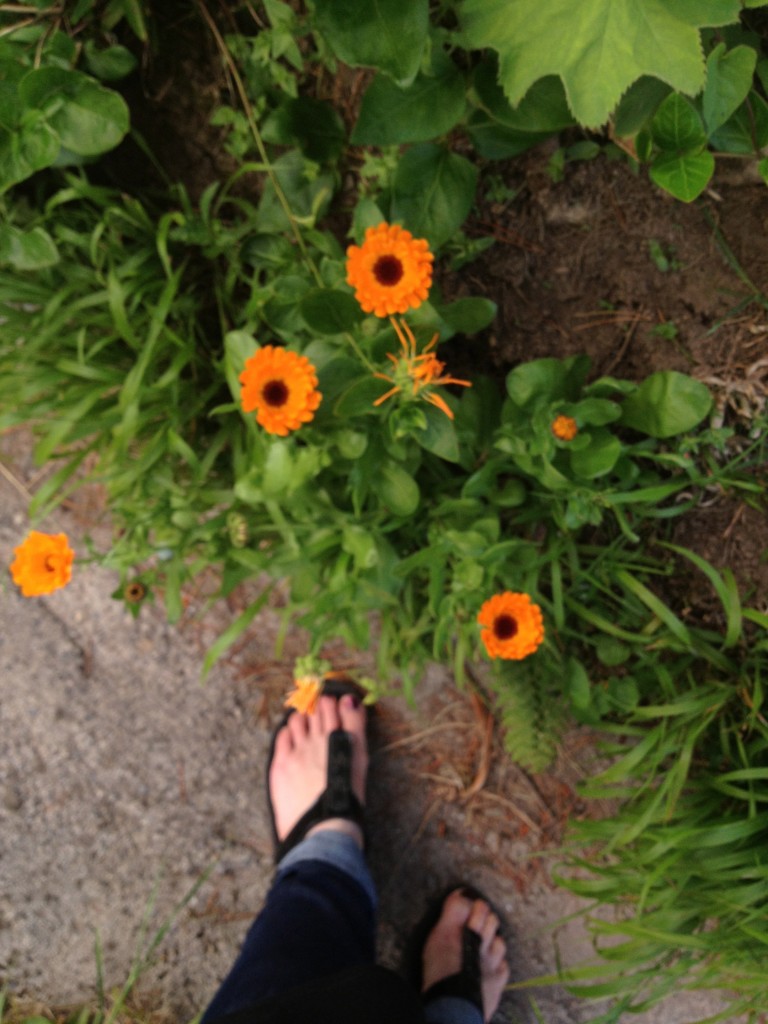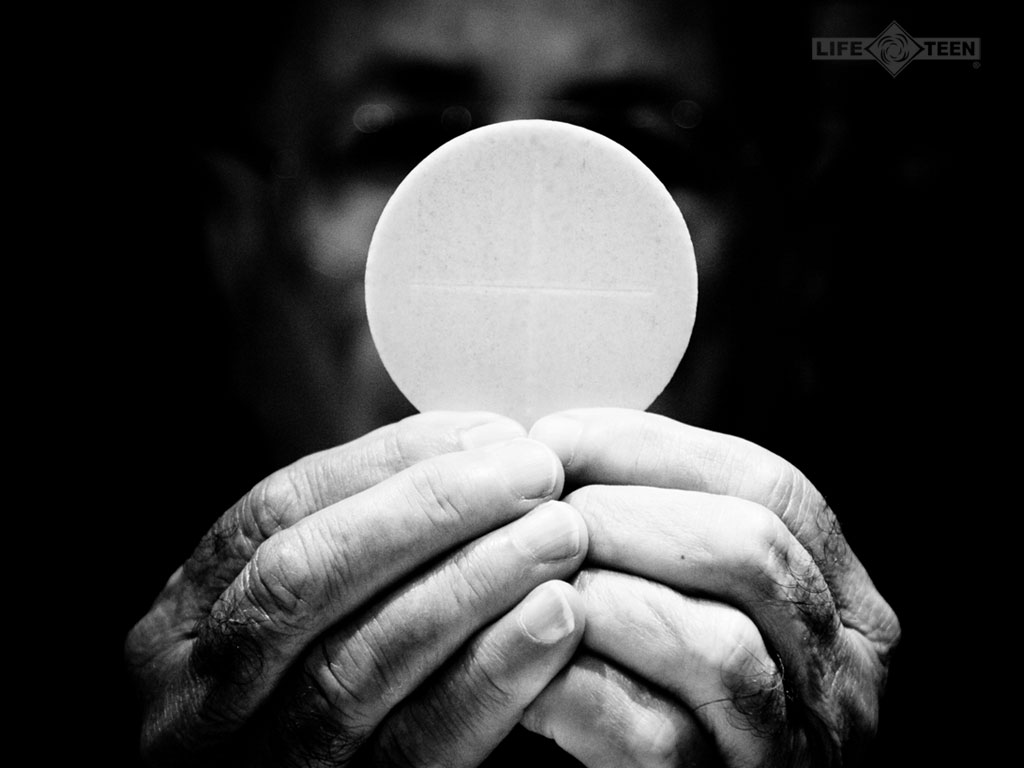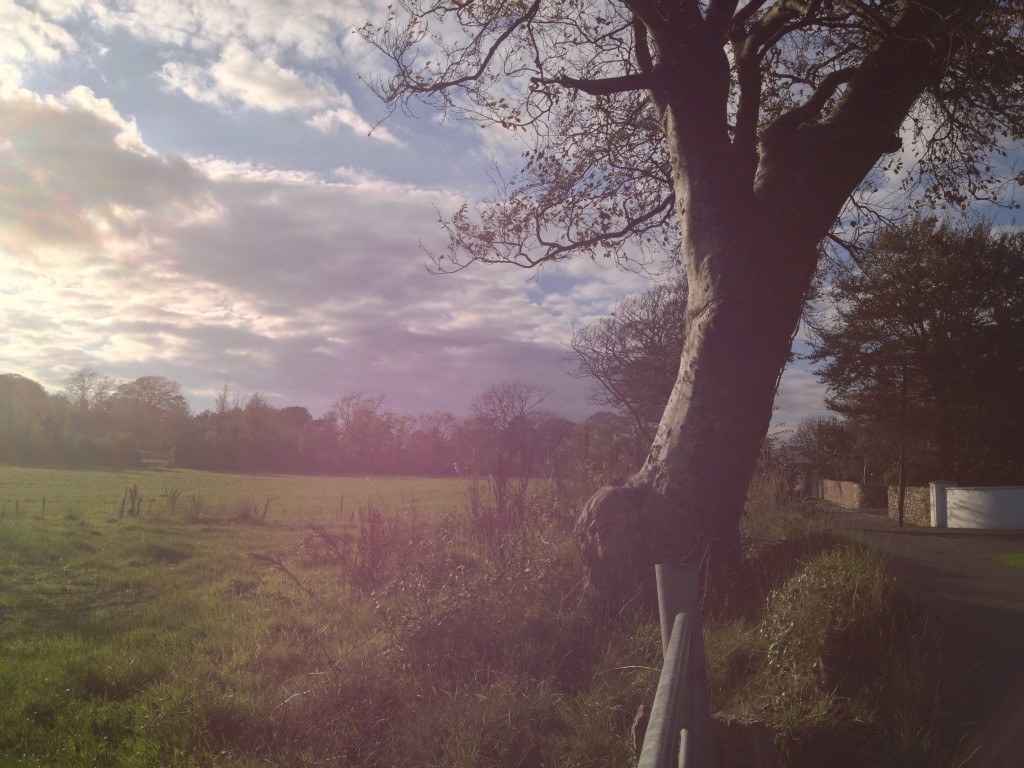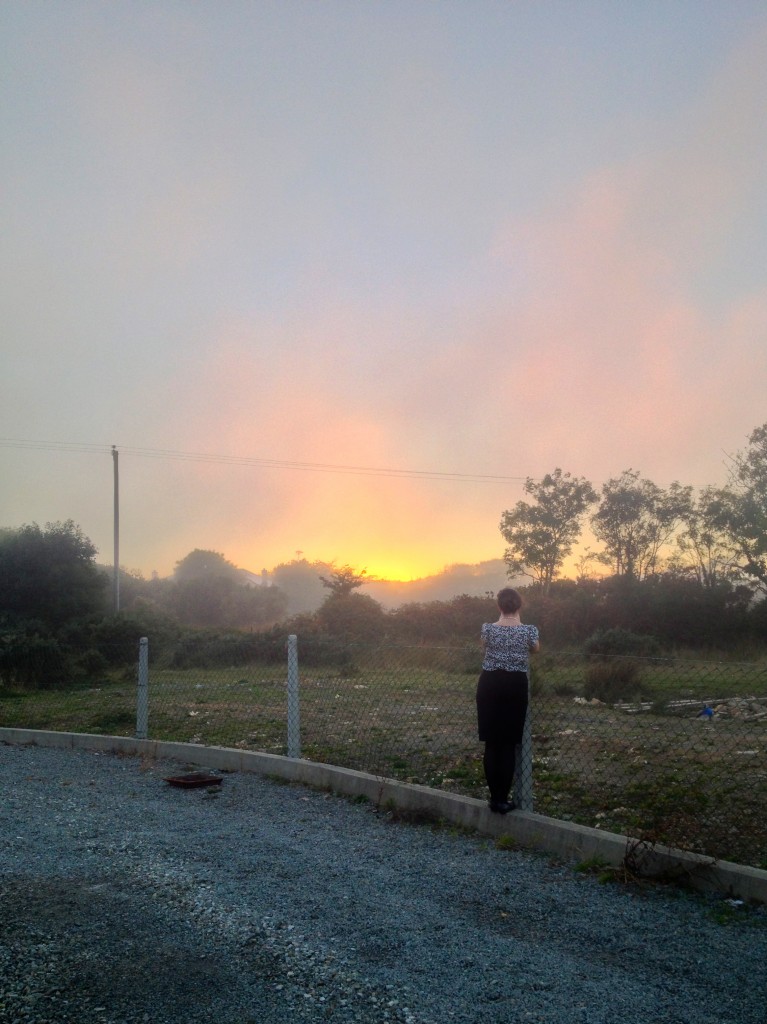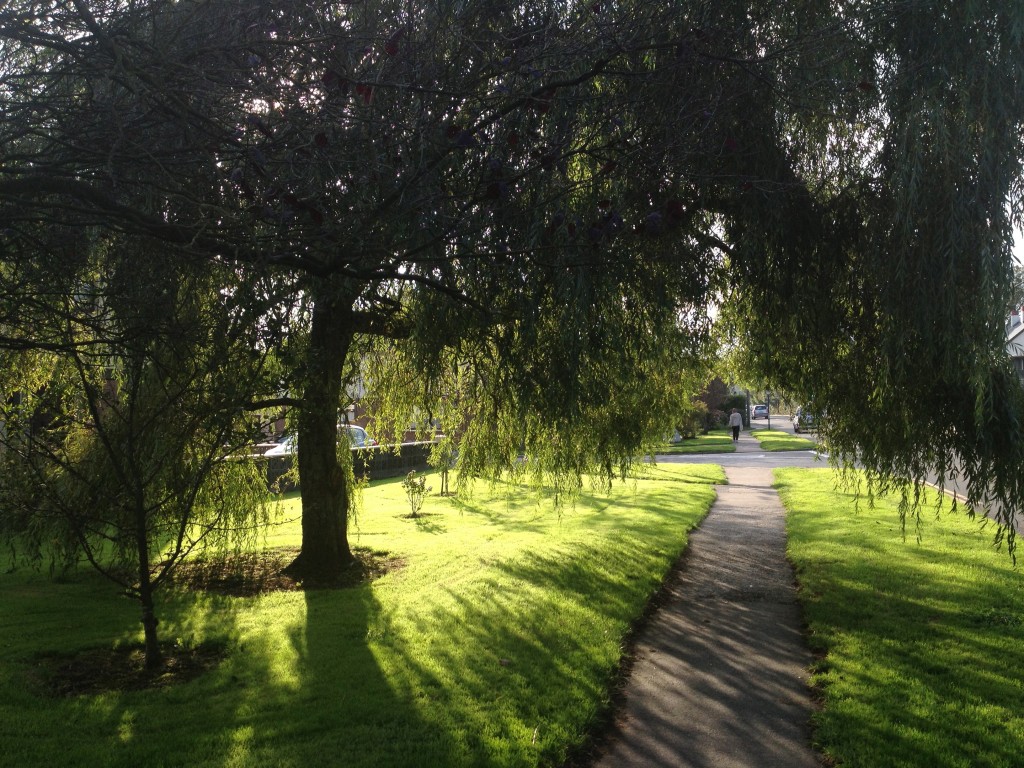When you tell people you’re moving to Ireland for a year, one of the questions that often comes up is, “Is the grass there really as green as they say?” And, indeed, Ireland most certainly lives up to its nickname as the Emerald Isle: the grass here is green enough to put all other greens to shame. But, then, I expected that when moving here. What I didn’t expect about Ireland was the sky. I don’t know if it’s because we’re closer to sea level, or because there are fewer (and shorter) trees and buildings here than what I’m used to in America, or just because the sky here is so often heavy and gray that even a glimpse of blue is a delight to behold, but there’s something about the sky on a clear day in Wexford that makes the veil between Heaven and earth seem very thin. I mean, just look at it! Could you not get swallowed up whole in all that azure beauty?
This morning, as Ben and I were walking down the hill from our house to Scoil Mhuire, the school where we’re preparing a group of 5th graders for a class mass later this week, the early morning sky was particularly striking. Walking along with my head in the clouds and my eyes dazzled by the brilliance of the sunrise, I was reminded of the words of Jesuit poet Gerard Manley Hopkins, who wrote, “The world is charged with the grandeur of God.”
The world is charged with the grandeur of God.
How true those words are, and how easy it is to see their truth here in Wexford! The whole of creation echoes the song of its Creator, but it’s easier to hear His voice when you’re surrounded by beauty like this:
These past few weeks in Wexford have afforded me countless chances to hear Christ’s voice and see His face in myriad different ways. To quote Gerard Manley Hopkins again, “Christ plays in ten thousand places, lovely in limbs, and lovely in eyes not His.” I have looked on in delight, gratitude, and wonder as Christ has played in my life through the lovely people around me: as my three community members spend an hour on a Friday night spontaneously composing and singing birthday songs via Skype to my little sister on her birthday; as the students in Scoil Mhuire sing their hearts out in class and come running up to Ben and me in the schoolyard before class to greet us and make us feel as welcome in the school as if we’d been going there our whole lives; as parish staff quietly and unassumingly go about setting up chairs, lighting candles, pouring tea, troubleshooting temperamental sound systems, and doing the other thousand things that need to happen to keep life in a parish running smoothly; as new friends invite us into their homes to share dinner, conversation, and a beautiful sense of belonging; as the dedicated members of the Vigil Choir look up at me with a smile at the end of every single song at every single mass, no matter how many mistakes I’ve made in conducting it. Truly, Christ plays in ten thousand places here in Clonard. Here, He is revealed to me, lovely in the eyes of those who show me the beauty of His love day after day.
Yesterday morning before Eucharistic Adoration began, Fr. Denis took a minute to invite the congregation to sing along to the words of Pange Lingua, the beautiful Eucharistic hymn written by St. Thomas Aquinas. Fr. Denis mentioned that his favorite words in the hymn are sensuum defectui: the failure of the senses. He commented on the wonder of the fact that even St. Thomas Aquinas, a Doctor of the Church and arguably one of the most brilliant minds in Western history, found that all his study and even his very senses failed him when he tried to contemplate the mystery of the Eucharist. I think this line of the hymn becomes even more beautiful when taken in the context of the previous line: praestet fides supplementum, sensuum defectui, let faith provide a supplement for the failure of the senses. When I look upon the beauty of a Wexford sunset or listen to the sweetness of the Scoil Mhuire children singing, “Be still and know that I am God,” my senses fail me: my eyes, my ears, are too feeble to take in all the beauty they see, all the richness they hear. This sky is too big and too beautiful for my eyes to hold:
And when I look upon the beauty of my Eucharistic Lord, my precious Jesus revealed in the Most Holy Sacrament of the Altar, what do my eyes behold? What does my tongue taste when I receive His very Body and Blood? The feeble senses fail: they see and taste only bread and wine. But the eyes of faith provide a supplement to what my human eyes won’t see until Heaven: the eyes of faith see Christ Himself revealed around every bend, in every face, in every sky, and in a humble piece of bread and cup of wine.
The beauty of Wexford – the town itself and, even more so, its inhabitants – awakens my senses. It invites me to lose myself in gazing upon God’s grandeur revealed in the world, to strain my eyes until they can take in no more, and then to keep on gazing anyway. The beauty of Christ, offered for me and for all in the Eucharist, is too great for my feeble senses to comprehend, but I am content to spend the rest of my life letting my little eyes be trained by all this beauty around me to learn to see Beauty itself. May faith provide the supplement my weary eyes need on days when the face of Christ is hard to find, and may I never forget to stop and stare in wonder when this world reflects back the grandeur of the Beauty that breathed it into being.

